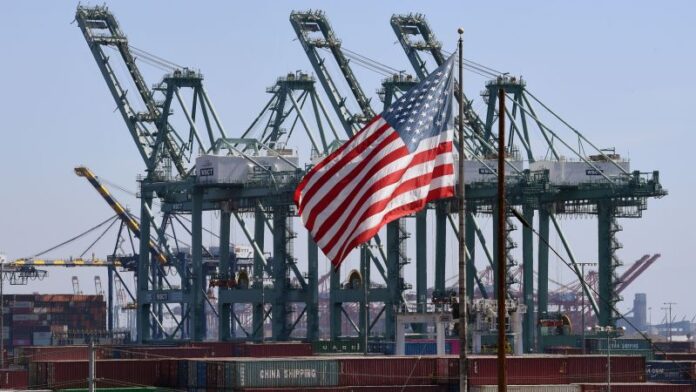U.S. import prices unexpectedly declined in March, driven primarily by a drop in fuel costs, offering the latest signal that inflation was easing ahead of the implementation of President Donald Trump’s extensive tariff measures.
The Labor Department’s report, released Tuesday, showed import prices fell 0.1% last month, the first decrease since September.
The figure followed a downwardly revised 0.2% increase in February. Over the 12 months through March, import prices rose 0.9%, a slowdown from the 1.6% year-on-year gain recorded in February.
This data adds to a series of moderate inflation readings for March, including consumer and producer prices, reinforcing expectations that core inflation remained contained.
Despite the subdued price pressures in March, uncertainty looms over the inflation outlook as the White House moves forward with its tariff agenda. These tariffs have already sparked a trade conflict with China and contributed to market volatility.
In financial markets, U.S. stocks traded higher while Treasury yields fell. The dollar strengthened against a basket of currencies, recovering from recent weakness tied to trade tensions. Market expectations suggest the Federal Reserve could resume interest rate cuts as early as June, potentially lowering the federal funds rate by a full percentage point by the end of the year.
The Fed’s benchmark rate currently stands in the 4.25% to 4.50% range.
Fuel import prices dropped 2.3% in March after climbing 1.6% in February. The decline was linked to falling oil prices, driven by concerns that prolonged trade disputes could hamper global growth and dampen demand for energy.
Food import prices inched up 0.1% after being flat in February, while core import prices, which exclude food and fuel, rose 0.1% for a second consecutive month. Over the past year, core import prices increased 1.1%.
Other components of the import index showed mixed results. Prices for imported capital goods rebounded 0.3% after slipping 0.1% in the previous month. Automotive imports, including vehicles, parts, and engines, declined 0.1%, while non-automotive consumer goods imports fell 0.2%.
Prices for imported durable goods-related metals climbed 1.3%.
Import prices from China fell 0.2% in March, following a 0.1% decline in February, and were down 0.9% from a year earlier. In contrast, Japanese imports rose 0.5% month-on-month and were 1.7% higher than a year ago. Prices for imports from the European Union remained flat, while Canadian goods saw a steep 1.5% drop.
Imports from Mexico were 0.3% cheaper.
Export prices showed no change in March after a 0.5% rise in February. Agricultural exports were flat as higher soybean prices offset declines in wheat and rice. Nonagricultural exports dipped 0.1%, reflecting lower prices for industrial supplies, nonagricultural food products, and materials.
Export prices for motor vehicles, capital goods, and consumer goods registered modest increases.























